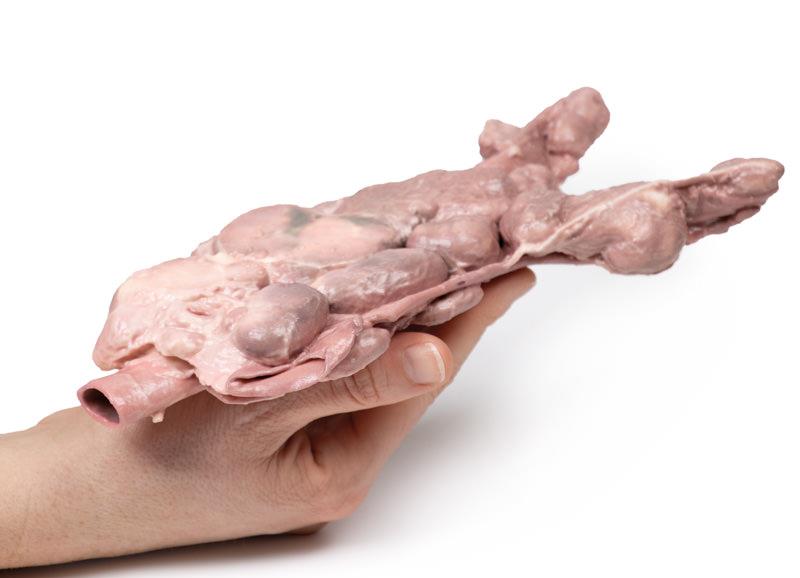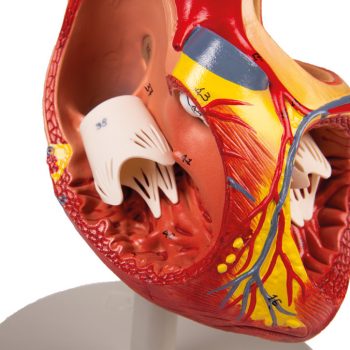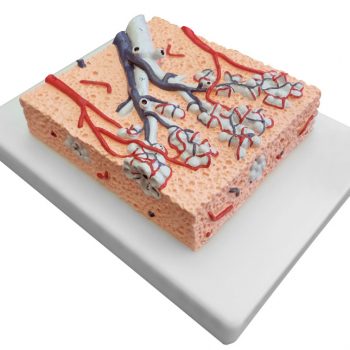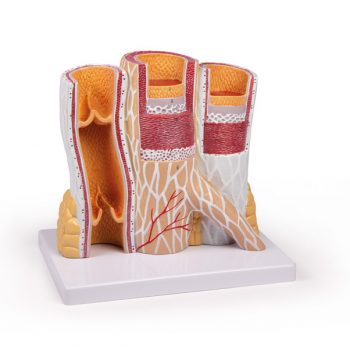Clinical History
This was a case of a 75-year-old female who presented with symptoms of recurrent disease and confirmed to have chemo-resistant multiple retroperitoneal lymph node metastases five years after the initial therapy for stage IIIc serous adenocarcinoma of the ovary. Positron emission tomography/computed tomography (PET/CT) revealed the involvement of para-aortic nodes and pelvic nodes. She died of liver complications before therapeutic options, such as radical lymphadenectomy, could be considered.
Pathology
The specimen consists of the abdominal aorta and common iliac arteries surrounded by large numbers of extremely enlarged iliac nodes para-aortic lymph nodes. Histopathological examination revealed metastatic high-grade adenocarcinoma in some of the resected lymph nodes.
Further information
Occasionally, lymph node metastases represent the only component at the time of recurrence of ovarian cancer. In this case, the metastatic nodes predicted by PET/CT completely corresponded to the actual metastatic nodes. Ultrasound (US) could equally have confirmed the presence of such large lymph nodes. PET/CT or US often fails to identify microscopic disease in histopathologically-proven positive nodes. Therefore, it is difficult to reliably exclude lymph node metastases during surveillance following initial surgery for ovarian cancer.
In the context of a recurrent ovarian disease, systematic aortic and pelvic node dissection would be considered appropriate in younger women with no other evidence of metastatic disease. This is unlikely to be curative but may produce palliation with symptom control and allow for the trial of novel therapies if available.
More commonly, sampling of pelvic and aortic lymph nodes is part of the formal surgical staging of epithelial ovarian cancer at the time of initial surgical treatment. In addition, in women presenting initially with advanced stage ovarian cancer, systematic debulking of enlarged retroperitoneal lymph nodes will be considered if this leads to complete debulking of the tumour.








